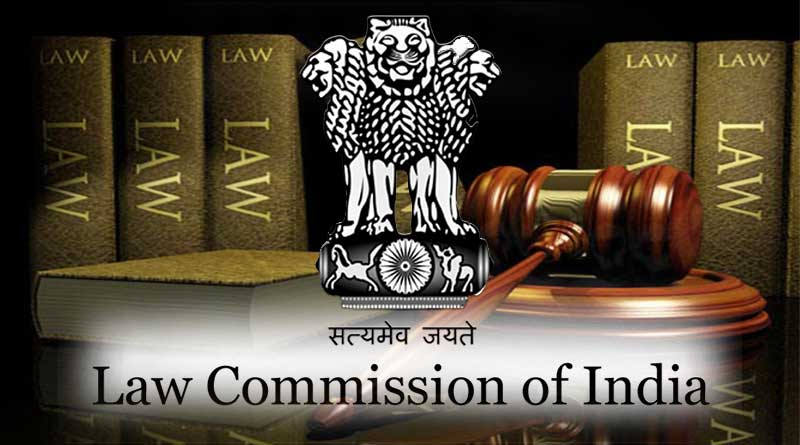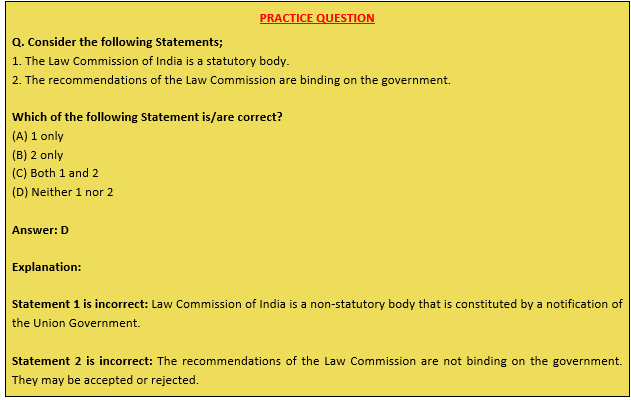Description

Copyright infringement not intended
Context: The Union Cabinet chaired by the Prime Minister has approved the extension of the term of the 22nd Law Commission of India up to 31st August 2024.
Background
- Before Independence: The first Law Commission was established during colonial rule in India by the East India Company under the Charter Act of 1833 and was presided by Lord Macaulay.
- After that, three more commissions were established in pre-independent India.
- After Independence: The 1st Law Commission of independent India was established in 1955 for a three-year term.
- In November 2022, Justice Rituraj Awasthi (Former Chief Justice of Karnataka High Court) was appointed as the chairperson of the 22nd Law Commission.

Law Commission of India
- The Law Commission of India is a non-statutory body that is constituted by a notification of the Union Government, with definite terms of reference to carry out research in the field of law.
- The Commission would have a tenure of 3 years from the date of publication of the Official Gazette.
- The commission's function is to research and advise the government on legal reform, and is composed of legal experts, and headed by a retired judge. The commission is established for a fixed tenure and works as an advisory body to the Union Ministry of Law and Justice.
- The Commission makes recommendations to the Government as per its terms of reference. Terms of reference for the 22nd Law Commission;
- Identify laws which are no longer needed or relevant and can be immediately repealed.
- Examine the existing laws in the light of Directive Principles of State Policy and suggest ways of improvement and reform.
- Suggest such legislation as might be necessary to implement the Directive Principles.
- Suggest some measures to attain the objectives set out in the Preamble of the Constitution.
- Revise the Central Acts of general importance to simplify them and remove anomalies, ambiguities and inequities.
- The recommendations of the commission are not binding on the government. They may be accepted or rejected.


https://www.pib.gov.in/PressReleasePage.aspx?PRID=1901253

















